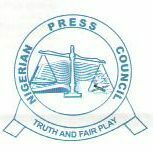A three-day workshop on Curriculum Guidelines for improved Journalism Education in Nigeria, organized by the Nigerian Press Council, mainly for Heads of Mass Communication Departments in Nigerian media training institutions was held at the Peninsla Resort, Lagos – Epe Express Road, Ajah, Lagos from October 4-6, 2007.
2.0 The Workshop was to domesticate the UNESCO Model Curricula for Journalism Education for Developing Countries and Emerging Democracies and; the Declaration of Principles of Journalism Education by the First World Journalism Congress, held in Singapore, June, 2007. The workshop was intended to design Journalism/Mass Communication Curriculum Guidelines in line with global academic and industrial demand for quality mass communication education in Nigeria.
3.0 One hundred and twenty (120) participants attended the workshop, among whom were Heads of Department of Mass Communications in Nigerian Universities, Polytechnics, Monotechnics, as well as Media Proprietors, Media Executives, Nigeria Union of Journalists, National Universities Commission, Nigerian Institute of Public Relations, Advertising Practitioners’ Council of Nigeria, Newspaper Proprietors Association of Nigeria, Nigerian Guild of Editors, Information Managers and Lawyers in the Media.
4.0 RESOLUTIONS
4.1 At the end of the workshop, participants resolved as follows:
- that there should be collaboration between National Universities Commission (NUC) National Board for Technical Education (BTE), media regulatory agencies and professional bodies for joint Accreditation Visitation to Journalism training institutions.
- that there is the need for National Agenda-Setting by the Nigerian mass media in the face of deliberate control of the Nigerian mind by the foreign media.
- that proper emphasis should be placed on internship for Students of Journalism/Mass Communication training institutions in the country.
- that there is the need for the Industrial Training Fund (ITF) to extend payment of internship allowances to university undergraduates as is the practice in polytechnics.
- that the Nigerian Association of Journalism and Mass Communication Teachers (NAJMAT) should meet regularly for the purpose of cross-fertilization of ideas in the discipline.
- that there should be quality control/assurance mechanism for journalism/mass communication education and training in the country.
- that emphasis should be placed on recruitment of qualified teachers and provision of adequate facilities in the establishment of Mass Communication Departments.
- that mass communication curricula must include and emphasis book publishing as an area of specialization, in the same was Broadcast, Print, Public Relations and Advertising are taught.
- that Broadcast stations that are involved in trans-border transmission should always promote Nigeria positively.
- that the teaching of Community Broadcasting be included in the curricula of Journalism/mass communication institutions in Nigeria.
- that all institutions of mass communication should provide adequate studios, laboratories and other relevant equipment in their programmes.
- that admission procedures into mass communication institutions should be fine-tuned to admit only the best.
- that other universities which are better equipped and staffed should provide leadership in the training at both Master’s and Doctorate levels.
- that both Nigerian history and mass media history should be made core courses in all journalism/mass communication departments.
- that there is the need to teach law and ethics as separate courses in institutions offering mass communication programmes and that each courses should be upgraded from their current two-unit to a three-unit course and taught in the fourth year of the academic programme.
- All mass communication programmes in Nigerian institutions of higher learning should teach Chapter Two of the Nigerian Constitution i.e, Fundamental Objectives and Directive Principles of State Policy and should be made a core course.
- that the Nigerian perspective should be central to the teaching of mass communication in the country.
- that broadcasting license for mass communication institutions should be liberalized so as to enhance the practical work of the students.
- That computer literacy and current trends in Communication Technology should be required and emphasized for mass communication students.
- That new technologies such as the Internet, Mobile Phones, e-learning, Digital Cameras, USBs, CD-Roms and ipods, etc. should be used in the teaching of mass communication.
- That proliferation of Mass Communication Departments without adequate preparation for them in terms of staff and equipment should be discouraged.
5.0 Finally, the Workshop expresses gratitude to the Honourable Minister, Mr. John Ogar Odey through his representative Mr. Babatunde Bello for presenting the keynote address. It also commends stakeholders and participants for their contributions.
